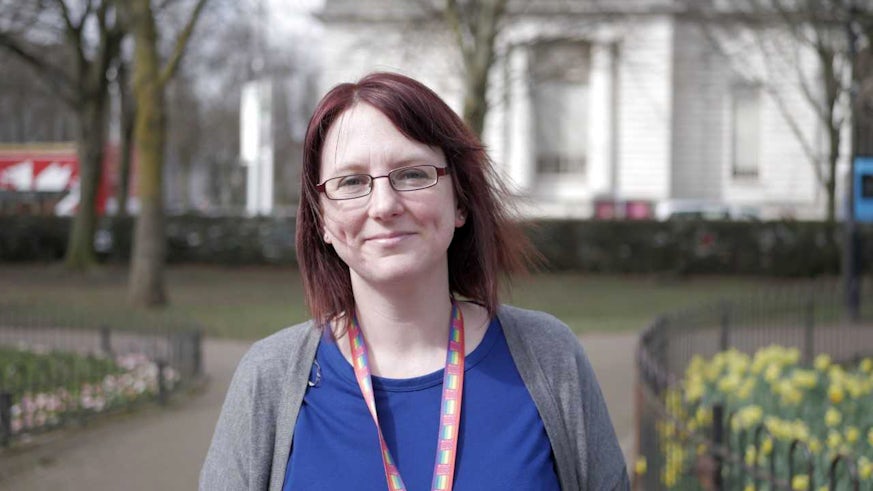Finding a place to belong: a working-class lecturer’s journey
2 May 2018

In the 1990s, I was a working-class kid, from a council estate just outside Oxford, where no one went to sixth form, let alone university. I remember having a massive silver sports bag, a huge purple puffy coat, and a perm. Around 1992, my parents stumbled upon the Conservative Government’s Assisted Places Scheme. I remember I had an interview with the headmistress at a local independent school and we talked a lot about my reading, especially The Lord of the Rings.
Not long after, I took the entrance exam. For geography, I was given a map of Australia to label and I wrote Alice Springs on every arrow as I knew at some point it would have to be right. In maths, I wrote lots of question marks - it was the one subject where I never caught up.
In between exams, I was looked after by some current pupils. They did not have perms. Or purple coats. Or big silver sports bags. They were really nice, complimenting me on my stripy jumper (that I had borrowed from my mum) and they had beautiful hair. But that’s when I realised I was different.
In the spring of ’93, I was given a place at the school, funded by the Assisted Places Scheme. What it didn’t cover was the extras, like the charges for books, and trips, and dinner money. There was a uniform grant at the beginning, but it didn’t cover everything, especially as the uniform could only be bought from a specific shop. I never had any replacements.
“I like your sewing kit,” a girl in Domestic Science said. Did she really? Everyone else had department store baskets. I had a converted ice-cream tub, covered in maroon felt and lace. My mum tried really hard with that, and I kept it for years afterwards.
When I got to the school, it took me about a year to catch up. I was like a sponge. Before, I had been the kid who was bullied for being a “brain box”. In the state school, a gang of girls hid my lunch bag behind a toilet cistern for fun. But at the independent school, learning was OK. In fact, doing well academically was what was expected.
But there were different things to contend with. Once, a girl told me that her father simply didn’t believe in council housing. How do you respond to someone’s inherited disdain for the very structure that keeps you safe at night?
Looking back, I can hardly believe how much time I spent worrying about money when the whole point was to raise my aspirations. And to take me away from the perm, the puffy purple coat, and the massive silver sports bag. If aspiration was the main point, then it worked. But at what cost? The cost of always feeling less than good enough? Always having a point to prove? Of never feeling like I truly belonged?
By late 1997, I held an offer to study English at St Anne’s College, Oxford University. The interview was intense, but I was not phased. I even enjoyed it, in a weird way. I did realise, however, that I had been pronouncing Coleridge wrong the whole time.
But kids from Blackbird Leys did not go to university and they certainly did not go to Oxford. When I went to pick up my grades, no one would look at me. I knew it was bad. The embarrassment of having to tell everyone that I hadn’t done it was awful. I took up my insurance offer feeling like a failure.
I moved from a council estate to the midst of the Home Counties where everyone had attended good schools, still had nice hair and went home at weekends to places like Virginia Water. I lasted a term. My personal tutor didn’t know my name when I turned up to withdraw. No one noticed me quietly slip away and give up.
A few years later, with two small children in tow, I started a part-time foundation certificate at Oxford University, in the Continuing Education Department. This is the moment where everything changed for me. I still had very little confidence. I still felt like a failure, deep down. But I had the most amazing tutors, and I started to believe in myself again.
Skip forward over a decade and here I am with a PhD and a lecturing job in Cardiff University’s Continuing and Professional Education department, teaching adult learners, and running a programme that’s very similar to the one that gave me a second chance. I still feel awkward, uncomfortable and out of place a lot. But what I’ve noticed, more than ever, is that these feelings fall away when a student comes to see me and says “I can’t do this – this is not for people like me” and I can say: I understand, I know, and it feels horrible, but education is for you. You can do this. And I will help you.
For more information on the Pathways to a Degree programmes in humanities, including English Literature, English Language, Philosophy, Creative Writing, Media and Journalism, and History, please see the Continuing and Professional education webpages. A longer version of this article was originally published by Wales Arts Review and an abridged version by Times Higher Education in April 2018.
The original full length article can be found on Wales Art Review.